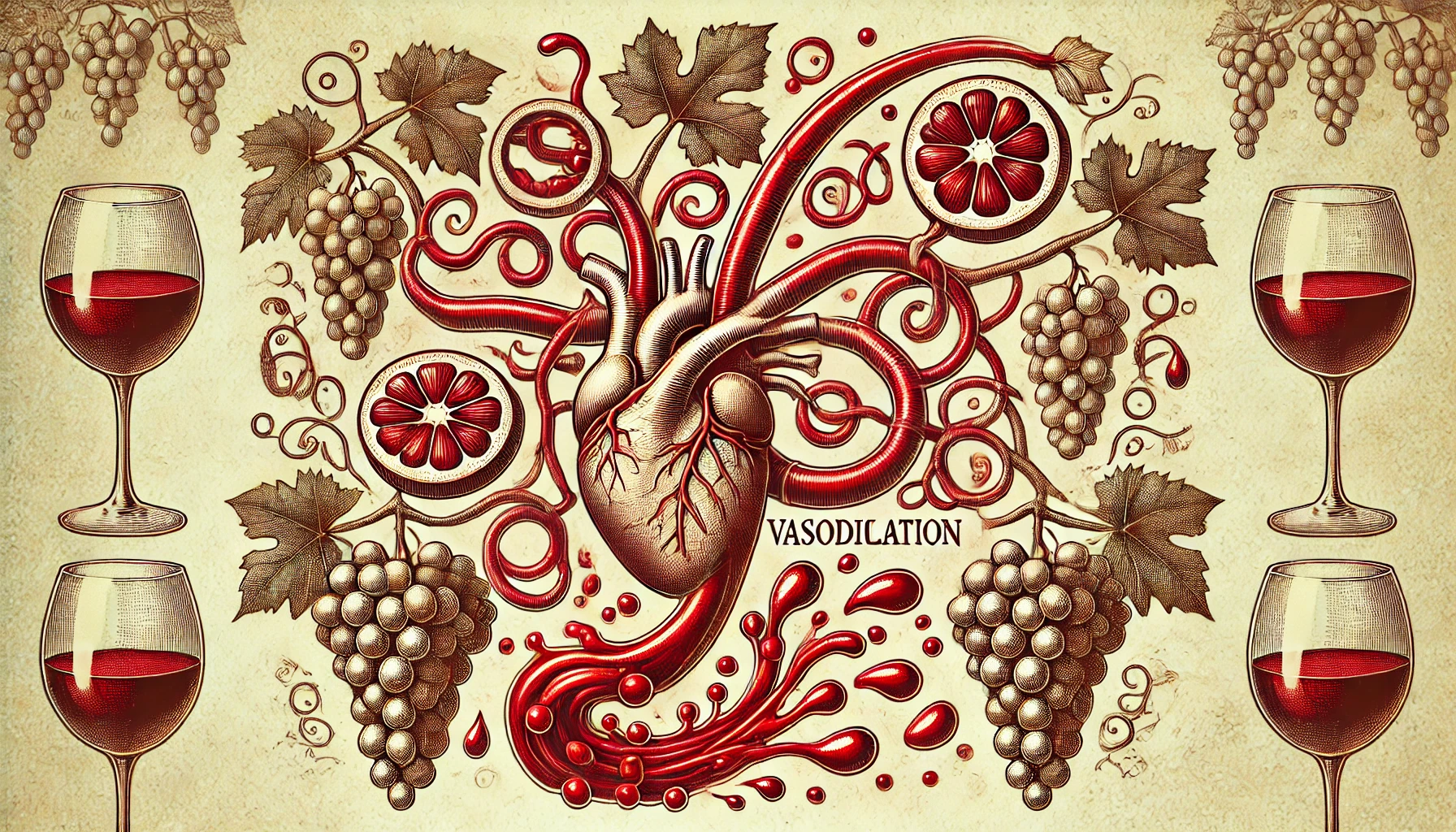
Vasodilation refers to the widening of blood vessels. This process occurs when the smooth muscles in the walls of arteries and veins relax. As a result, blood flow increases, and blood pressure decreases. In the context of wine, vasodilation can play an interesting role.
Certain compounds in wine, particularly red wine, can promote vasodilation. Polyphenols, such as resveratrol and flavonoids, are found in grape skins and contribute to this effect. These compounds help the body produce more nitric oxide, a molecule that signals blood vessels to relax and widen. When vessels expand, it allows for better circulation and improved heart function.
Drinking wine in moderation has been associated with several cardiovascular benefits. Improved vasodilation is one of them. The increased blood flow can lower blood pressure and reduce the risk of developing heart disease. Red wine, in particular, gets a lot of attention for this because of its rich polyphenol content.
Alcohol, in small amounts, also plays a role in vasodilation. It helps relax the muscles in blood vessel walls, making them wider. This can give the feeling of warmth and a flushed face after having a glass of wine. However, excessive alcohol consumption can have the opposite effect. Drinking too much can lead to high blood pressure and other health issues over time.
Moderation is key. A glass of wine with dinner may promote vasodilation and help protect your heart. But drinking beyond that can cause more harm than good. Always keep in mind that the potential health benefits of wine, including vasodilation, come with responsible consumption. Wine, when enjoyed thoughtfully, adds not only to a good meal but to your overall well-being.
Neugierig auf weitere Weintermini und spannende Einblicke? Besuchen Sie unseren Wine Wiki Bereich und entdecken Sie grundlegende Weinbegriffe sowie Expertentipps!